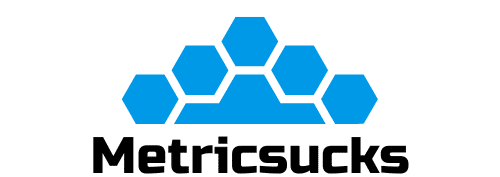How Are Smart Contracts Using Blockchain Being Applied in Real Estate Transactions?

The advent of blockchain technology is disrupting various sectors, and real estate is not an exception. The technology’s unique ability to record, track, and verify transactions is particularly appealing in the real estate sector. However, the real game-changer lies in a specific blockchain application known as smart contracts.
A smart contract is a programmable contract that carries out the terms of an agreement without an intermediary. From property search to finalising deals, this technology is now being used to alter the way real estate transactions are conducted.
Avez-vous vu cela : Unlock the excitement: how the mystery box machine works
Blockchain and Real Estate: A Perfect Match
The traditional process of buying or selling property is often time-consuming, opaque and fraught with potential logistical and legal pitfalls. Blockchain technology promises to streamline this process, providing transparency, efficiency, and security.
Blockchain, essentially a decentralised, distributed ledger, allows everyone on the network to view and verify transactions. In the context of real estate, this means that all data related to a property – from ownership history to land use rights – can be stored on a blockchain. This significantly reduces the risk of fraud or disputes, as the data cannot be altered or deleted.
Sujet a lire : Transform your marketing with a user-friendly video maker
Smart contracts take this one step further. These are self-executing contracts with the terms of the agreement directly written into code. They automatically enforce the contract’s terms, eliminating the need for intermediaries such as lawyers or real estate agents.
How Smart Contracts Operate in Real Estate Transactions
Smart contracts provide an innovative way to automate and expedite processes in the real estate industry. By using smart contracts, buyers and sellers can complete transactions with less friction and more confidence.
In a typical real estate transaction using a smart contract, once the buyer and seller agree on the price and other terms, the contract is coded and added to the blockchain. When the buyer transfers the agreed amount to the smart contract, the contract automatically verifies the payment and transfers the property title to the buyer. This entire process takes place without any manual intervention, ensuring speed, accuracy, and transparency.
This model is not just beneficial for buyers and sellers; it also has potential benefits for lenders, insurers, and others involved in the transaction. For instance, lenders can use smart contracts to automate the mortgage process, reducing the time and cost involved.
Using Blockchain to Improve Property Data Management
The real estate industry is heavily reliant on accurate, comprehensive property data. This includes information about property history, current ownership, zoning regulations, and more. Traditionally, this data has been stored in various databases, making it difficult to access and verify.
Blockchain technology can consolidate this data, providing a single source of truth that all parties can trust. For example, a blockchain-based land registry could include a comprehensive record of all transactions related to a property. This could significantly reduce the risk of title disputes and fraud.
Smart contracts can also automate property data management. For instance, a smart contract could automatically update the land registry whenever a property is bought or sold. This could save time and resources, and improve the accuracy of property data.
The Future of Real Estate Transactions with Blockchain
While blockchain technology and smart contracts hold great promise for the real estate industry, they are not without their challenges. Regulatory hurdles, technological complexity, and lack of awareness are some of the barriers to widespread adoption.
However, as technology continues to evolve, it is becoming increasingly apparent that blockchain and smart contracts will play a significant role in shaping the future of real estate transactions. They hold the potential to streamline processes, improve transparency, and enhance security.
As more and more stakeholders in the real estate industry begin to understand and adopt this technology, we will likely see a shift towards a more efficient, transparent, and trustworthy model of property transactions. It’s an exciting time to be involved in the intersection of real estate and technology.
Despite the hurdles, the adoption of blockchain and smart contracts in real estate transactions continues to gather momentum. It’s clear that these technologies have the potential to revolutionize the industry, providing unprecedented levels of transparency, efficiency, and security. As we move forward, it’s crucial that all stakeholders – from buyers and sellers to agents, lawyers, and regulators – understand these technologies and their implications. With the right approach, the blockchain revolution in real estate can be a win for everyone involved.
Practical Examples of Blockchain and Smart Contracts in Real Estate
While the theoretical applications of blockchain and smart contracts in real estate are certainly compelling, it’s equally important to consider practical examples of how these technologies are already being used in the field.
For instance, Propy, a global real estate marketplace with decentralized title registry, has completed several transactions using blockchain and smart contracts. In 2017, the company facilitated the first-ever blockchain-based real estate sale in Ukraine. The buyer, a tech-savvy investor from California, purchased the property online via a cryptocurrency auction, with the deal structured and executed using a smart contract.
Similarly, Meridio, a blockchain-based platform that enables fractional property ownership, is another prime example. The platform allows property owners to tokenize their real estate assets, dividing them into digital shares that can be easily bought, sold, or traded. This approach provides increased liquidity, reduces entry barriers for potential investors, and simplifies the transaction process through the use of smart contracts.
Moreover, governments and public institutions are also exploring the use of blockchain technology. In Sweden, the national land registry authority, Lantmäteriet, has successfully tested a blockchain-based system for property transactions. The system uses smart contracts to automate the process, with the aim to increase efficiency and reduce the potential for fraud.
These examples demonstrate that blockchain and smart contracts are not just theoretical concepts. They are practical tools that are already being used to enhance the real estate industry.
Conclusion: Embracing the Blockchain Revolution in Real Estate
The application of blockchain and smart contracts to real estate transactions is more than just a trend; it’s a significant technological shift that promises to reshape the industry. It provides a level of transparency, efficiency, and security that was previously unheard of in real estate transactions.
Through the use of blockchain technology, property data can be consolidated and made accessible to all parties involved in a transaction. This not only decreases the potential for fraud but also simplifies the process for buyers, sellers, and other stakeholders.
Smart contracts, on the other hand, automate the transaction process, reducing the need for intermediaries and significantly speeding up the process. They ensure that all terms of the contract are automatically enforced, providing all parties with peace of mind.
While the adoption of blockchain and smart contracts in real estate is still in its early stages, the potential is clear. As we look towards the future, it’s crucial for stakeholders in the real estate industry to understand and embrace these technologies.
While there are still challenges to be overcome, the benefits of using blockchain and smart contracts in real estate transactions are undeniable. The promise of a more secure, efficient, and transparent property market is an exciting prospect. As such, it’s safe to say that blockchain and smart contracts represent the next frontier in real estate transactions.
